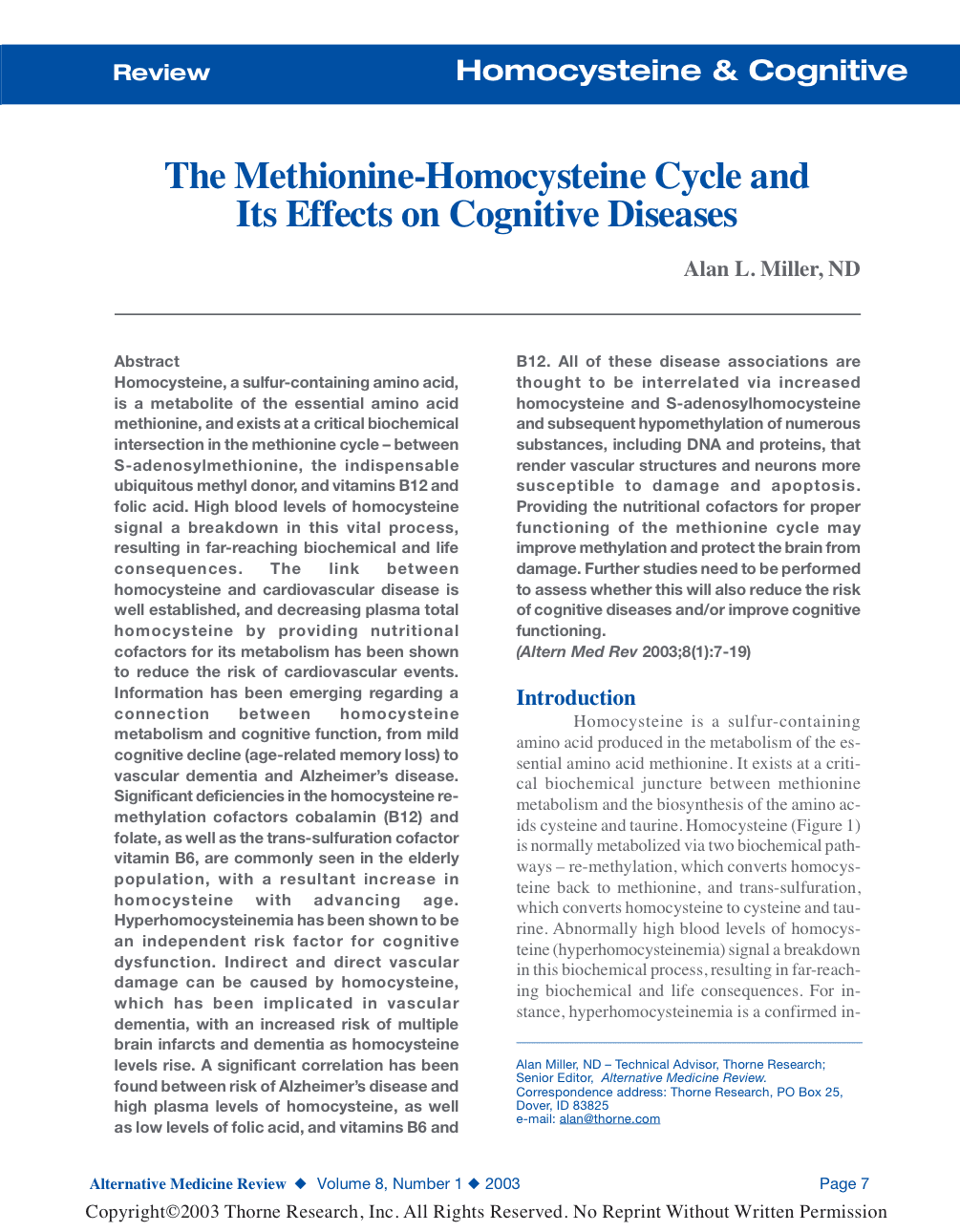Abstract
Homocysteine, a sulfur-containing amino acid, is a metabolite of the essential amino acid methionine, and exists at a critical biochemical intersection in the methionine cycle – between S-adenosylmethionine, the indispensable ubiquitous methyl donor, and vitamins B12 and folic acid. High blood levels of homocysteine signal a breakdown in this vital process, resulting in far-reaching biochemical and life consequences. The link between homocysteine and cardiovascular disease is well established, and decreasing plasma total homocysteine by providing nutritional cofactors for its metabolism has been shown to reduce the risk of cardiovascular events. Information has been emerging regarding a connection between homocysteine metabolism and cognitive function, from mild cognitive decline (age-related memory loss) to vascular dementia and Alzheimer’s disease. Significant deficiencies in the homocysteine remethylation cofactors cobalamin (B12) and folate, as well as the transsulfuration cofactor vitamin B6, are commonly seen in the elderly population, with a resultant increase in homocysteine with advancing age. Hyperhomocysteinemia has been shown to be an independent risk factor for cognitive dysfunction. Indirect and direct vascular damage can be caused by homocysteine, which has been implicated in vascular dementia, with an increased risk of multiple brain infarcts and dementia as homocysteine levels rise. A significant correlation has been found between risk of Alzheimer’s disease and high plasma levels of homocysteine, as well as low levels of folic acid, and vitamins B6 and B12. All of these disease associations are thought to be interrelated via increased homocysteine and S-adenosylhomocysteine and subsequent hypomethylation of numerous substances, including DNA and proteins, that render vascular structures and neurons more susceptible to damage and apoptosis. Providing the nutritional cofactors for proper functioning of the methionine cycle may improve methylation and protect the brain from damage. Further studies need to be performed to assess whether this will also reduce the risk of cognitive diseases and/or improve cognitive functioning. (Altern Med Rev 2003;8(1):7-19)

